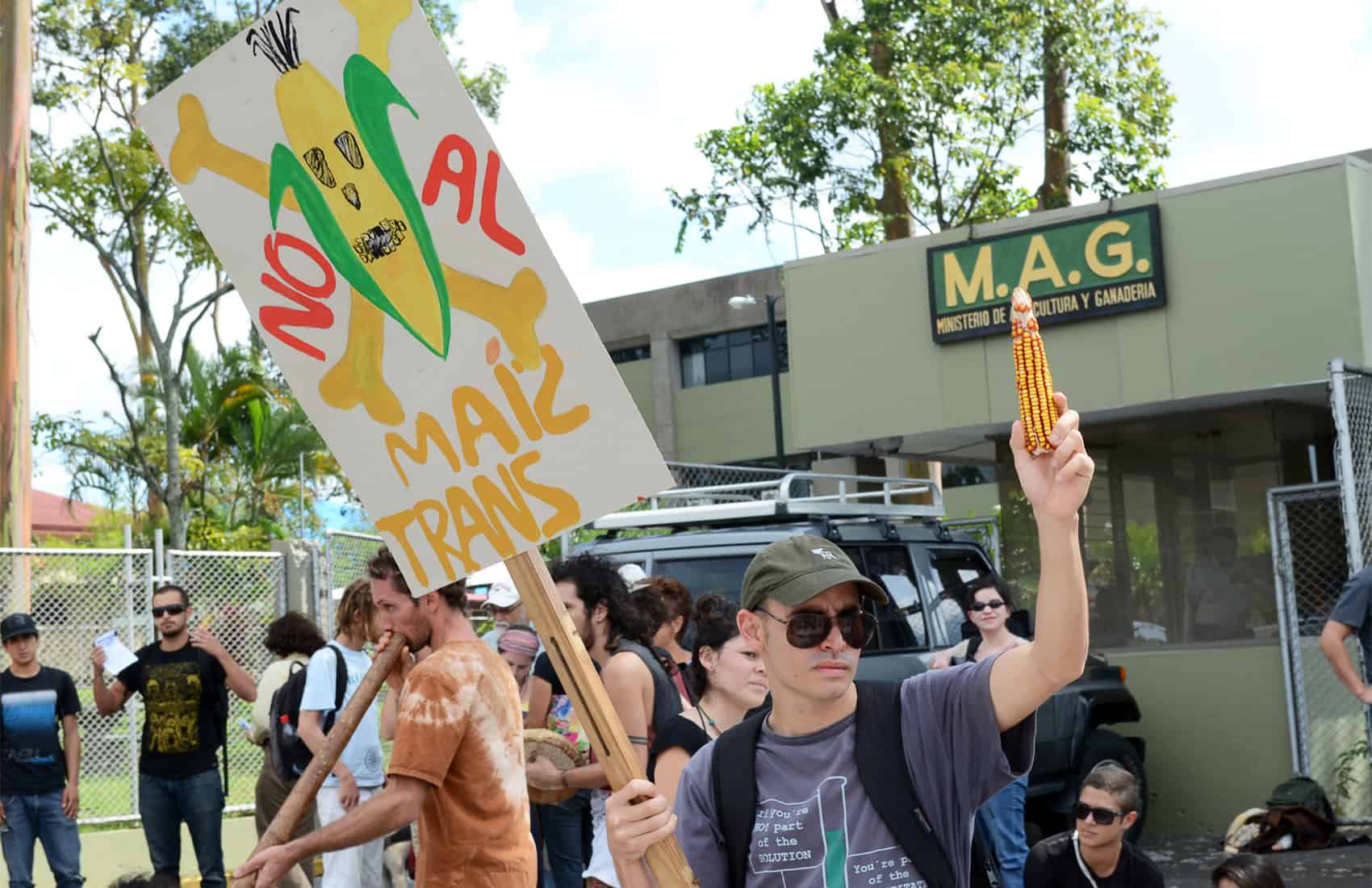A Legislative Assembly commission on agriculture on Tuesday will begin discussing a bill that would place a moratorium on the production of genetically modified crops in the country.
The proposal responds to demands from environmentalists, farmers and other groups opposed to the continued introduction of GMOs into Costa Rica’s agriculture. More than 60 of the country’s 81 municipalities have banned GMOs in some form, but those regulations are mostly unenforceable because GMO projects already have been approved by the Agriculture and Livestock Ministry and are allowed to continue even in areas with active bans.
The bill calls for a moratorium on GMOs “to be maintained across the country until there is certainty and scientific consensus on the risks involved.”
Anti-GMO groups called the proposal a “visionary step for the country to become an international leader in the field of sustainability,” according to a statement issued by the Costa Rican Federation for Environmental Conservation (FECON).
“Authorizing transgenics is a step in the wrong direction, and we must establish a moratorium in order to protect the goose that lays the golden eggs, which is the agro-biodiversity of our rural areas and our organic agriculture,” FECON’s statement said.
The Agriculture and Livestock Ministry approved the first GMO project in 1991. At the time multinational biotech company Monsanto began growing genetically modified soybeans and cotton to create seed for export. To date, none of the GMOs produced in Costa Rica are licensed for consumption.
Recommended: What you need to know about GMOs in Costa Rica
Currently more than 100 companies from the National Chamber of Ecotourism and Sustainable Tourism have sent lawmakers petitions urging them to approve the moratorium, arguing that GMOs threaten eco-tourism development in the country.
In September, the Constitutional Chamber of the Supreme Court struck down the government’s regulatory framework on GMOs, declaring the process of approval for GMO projects unconstitutional.
In recent months lawmakers on the commission have heard from anti-GMO advocates including Health Minister María Helena López, the president of the small- and medium-sized farmers group UPA Nacional, Guido Vargas, José Oviedo, from the Agroalimentary Council, and Fabián Pacheco, a member of both the Bloque Verde conservation group and the National Biosecurity Commission. Their arguments focused mainly on three issues: patent control, health risks and the spread of “monoculture” and industrial farming.
Discussions at the Assembly’s Agricultural Affairs Commission will result in a report on the bill that will be submitted for approval before the full Assembly.






